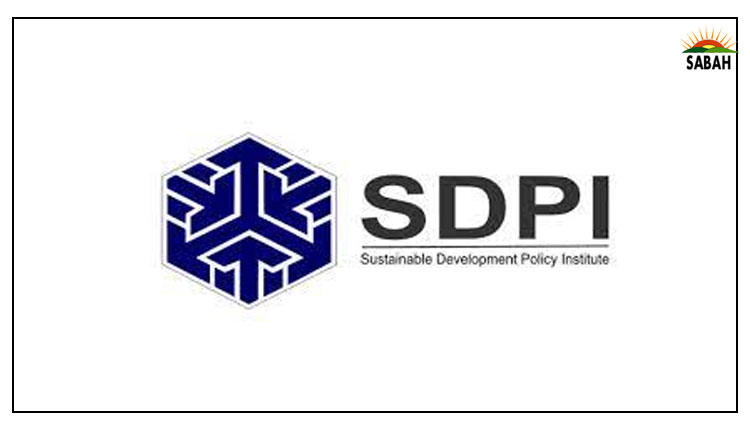Pakistan needs clear policy guidelines, legislation to control iTFA risks: Experts
ISLAMABAD, March 25 (SABAH): The experts at a launch of a policy document on Monday demanded a multistakeholder engagement intended to increase awareness of risks due to Industrial Trans Fatty Acids (iTFAs) proliferating in the food range of the country.
The Sustainable Development Policy Institute (SDPI) in collaboration with Cargill launched the policy brief on Reducing Industrial Trans Fatty Acids in Pakistan. It chalked out the regulatory landscape and actionable recommendations to curb iTFAs in the country.
Usman Qaiyyum, Country Lead, Cargill-Pakistan said public awareness of iTFAs was very crucial, whereas the SDPI has been making relentless efforts to address this issue at the relevant forums. “The SDPI team deserves appreciation for successfully formulating this document which will serve for a long time to carve policy actions on controlling iTFAs,” he said. He mentioned that almost one billion people were obese in the world making it 13-14% of the total population with more trend of obesity in the new generation, which is found less in the older generation due to the shift towards fast foods and bakery items having a higher ratio of iTFAs. “Obesity alone incurred $2 trillion economic impact around the world that includes medical cost, number of other things, low productivity of obese individuals, employment and mental health challenges and is expected to reach beyond $3 trillion by 2030,” he said.
Dr. Tahira Siddiqui, Deputy Director, Islamabad Food Authority said that the unsaturated naturally produced trans fatty acids (TFAs) mainly acquired from meat and dairy sources were healthy, but the saturated TFAs produced industrially by hydrogenation of palm oil were causing serious dietary risks leading to cancer and ischemic heart diseases. “Pakistan is the second highest consumer of trans fats in the Eastern Mediterranean region. However, this policy brief has focused on developing the alternatives and promoting collaboration among different stakeholders, public awareness, and assist dialogue between government and the industry,” she said. “Edible oils and fats import is the second largest after fossil fuels of $4.3 billion in 2022, whereas the trans fats are found at an alarming level in the diet components”, she added. She recommended that capacity building of labs to assess iTFA content, the introduction of duties and taxes more favorable to iTFA-free products, the role of policymakers at the federal and provincial levels, incentivization of industry and stakeholders along with a dedicated effort and commitment to think tanks, Media, and civil society was the key to achieve the goal.
Fahad Waheed, Director of Fauji Cooking Oils and Banaspati said Pakistanis consume 20kg per capita TFAs which is far bigger than the countries having no cardiovascular disease burden. He said, “VTF technology exists in Pakistan, and it is a trans-fat-free technology making TFA below 2 percent, but much awareness is required in this regard”. Edible oil was the second largest industry in Pakistan with massive imports that could not be shut at once, whereas the industry had to be responsible. When VTF was introduced, many brands labeled VTF on their product making it a trans fats-free item, he added.
Dr. Afreenish Mir, Microbiologist, and Project Director, National Institute of Health says public health is the government’s top priority, but there were challenges in terms of regulations and implementation in the industrial practices. She noted that formulation of clear guidelines prioritizing public health is crucial to achieving the target of zero iTFAs but it is also needed to develop collaborations between government and health agencies.
Dr. Salman, PMDC Deputy Registrar, Ministry of Health, says that the TFAs were responsible for serious health complications leading to cancer and other diseases. “Pakistani lifestyle has been modified over time and TFAs-based products have taken place in our diet menus”. He mentioned that alternatives to TFAs are very important. International collaboration and policy adoption and evaluation are very important in this regard as consumer awareness about TFAs and mandatory labeling in easy-to-read and local language should be implemented positively.
Dr. Syed Tufail Hussain Shah, Expert on iTFAs said there was a need to revamp medical labs and scientific resources available to catch the TFAs tracking as per the developing trend in our society.
Joint Executive Director, SDPI Dr. Vaqar Ahmed said that the high levels of TFAs in processed and fried foods pose a significant health risk in Pakistan, contributing to heart disease, stroke, and other chronic illnesses. The think tanks and health advocacy groups are pushing for stricter regulations on TFAs in food products, whereas there is resistance to change. “There are some strategies for change to start with, the federal government could implement evidence-based regulations limiting TFA content in food products, as per international standards. Financial incentives for food manufacturers could be offered to adopt healthier alternatives like vegetable oils during reformulation. The government could take a lead in launching public awareness campaigns highlighting the health risks of TFAs and promoting healthier food choices,” he said.
Think tanks like SDPI and health advocacy groups can help the federal government in researching the prevalence of TFAs in Pakistani food products and their impact on public health. SDPI continues to advocate for stricter TFA regulations and collaborate with the government on policy development and certainly, this coalition needs to be strengthened, he added. There are some capacity issues in some provinces that need to be addressed to ensure enforcement. Provincial governments can partner with international health organizations like WHO to access technical expertise and best practices on TFA regulation. Provincial food departments could prioritize and invest in strengthening food safety regulations and enforcement mechanisms to ensure compliance with TFA limits. Food inspectors and regulatory bodies could be trained on identifying and monitoring TFA content in food products.












